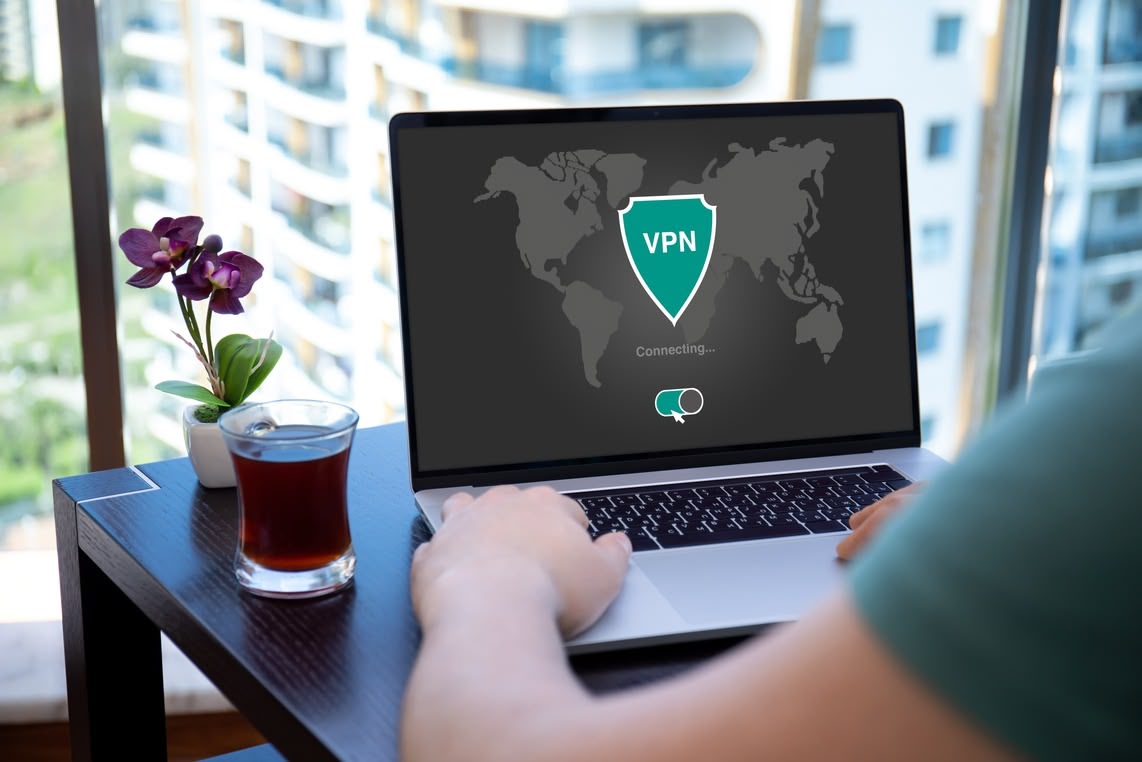Ever wondered how to shield your internet activity from prying eyes? Enter the world of VPNs—Virtual Private Networks—a powerful solution designed to safeguard your privacy and protect your personal data as it travels across the web.
A VPN routes your online traffic through a secure, encrypted connection to a private server, making your activity invisible to third parties—even when you’re browsing on an unsecured public Wi-Fi network.
Quick Points:
- VPNs hide your IP address and encrypt data, making your browsing anonymous and secure.
- They support remote access for businesses, allowing secure connections from anywhere.
- There are various VPN types, each suited to different needs—from individuals to global corporations.

How Do VPNs Actually Work?
VPNs build a protective “tunnel” around your data using encryption technology. As your information travels from your device to its destination, it is encoded and rendered unreadable to anyone who tries to intercept it. Once it reaches the private VPN server, the data is decrypted and forwarded to the website or online service you’re accessing.
Protocols like SSL (Secure Sockets Layer) and IPSec (Internet Protocol Security) are commonly used to establish these encrypted connections. SSL relies on public key cryptography, while IPSec uses pre-shared keys to ensure safe transmission between client and server.
The Real Role of a VPN
A VPN does more than just disguise your IP address—it adds multiple layers of protection for your digital life strengthens your overall cybersecurity. Whether you’re shopping online, handling sensitive corporate data, or browsing news sites, a VPN acts as a buffer between you and anyone trying to track, steal, or intercept your data.
For example, hackers often exploit open Wi-Fi networks to snoop on unsuspecting users. With a VPN, your traffic becomes undecipherable gibberish unless someone has the proper decryption key. This is essential when using public internet in cafes, airports, or hotels.
Types of VPNs: A Quick Overview
Different use cases demand different VPN structures. Here’s a breakdown:
1. Remote Access VPN
Ideal for users who need to connect to their organization’s network while working from remote locations. These VPNs allow secure access to corporate resources, cloud services, and apps directly from a laptop or smartphone.
2. Site-to-Site VPN
Used by enterprises to link office networks across different regions. This setup enables seamless and secure communication between multiple physical locations as if they were on the same local network.
3. Individual or Personal VPNs
Designed for everyday internet users, personal VPNs offer privacy protection and access to geo-restricted content. They encrypt traffic and provide anonymity for browsing, streaming, and file sharing.
4. Business VPNs
Built for organizations, these VPNs secure communications and data transfer across teams—especially with employees working remotely. They may include centralized control, better speed options, and support for multiple device connections.
Key Features of a Reliable VPN
When evaluating what makes a good VPN service, keep an eye out for the following:
- IP Address Encryption
Your online identity is masked by rerouting your activity through secure servers in different locations. - Multi-Factor Authentication
Two-factor or multi-factor authentication adds another layer of protection by requiring additional credentials beyond just a password. - Remote Work Compatibility
VPNs are essential for distributed teams. They ensure that staff working from home or other locations can safely access internal company systems and sensitive files.
Common Reasons to Use a VPN
- Enhanced Security on Public Wi-Fi: Encrypts your traffic so you’re not vulnerable to snooping when using open networks.
- Bypass Geo-Restrictions: Lets users access content unavailable in their location.
- Prevent Tracking: Keeps advertisers and data brokers from profiling your activity online.
- Corporate Use Cases: VPNs enable secure communication, even across borders, and help companies maintain productivity without compromising data security.
It’s important to recognize, however, that VPNs don’t offer complete anonymity. Websites you log into, such as Facebook or Gmail, can still track your activity. Also, cookies and other tracking technologies can identify your behavior across sessions unless cleared or blocked.
The Business Side: Enterprise VPNs & Their Future
The shift to remote work has placed VPN technology at the forefront of digital security strategies. With increased remote access comes increased risk—cybercriminals often target poorly configured VPNs to infiltrate corporate systems – look at what happened in the latest Samsung data breach.
- Site-to-Site VPNs are especially critical for businesses with global operations, enabling high-speed, secure data transfer.
- Cloud-Connected VPNs are on the rise, blending traditional encryption with modern SaaS security models.
- Zero Trust Architectures are becoming more common, requiring continual verification of users even within a VPN-protected network.
The VPN market is booming. Analysts predict that the global VPN industry will exceed $76 billion by 2030, with more people relying on these tools for both personal and professional security.
Choosing the Right VPN for You
When selecting a VPN provider, here are a few considerations:
- Free vs. Paid Services: Free VPNs often come with trade-offs—limited features, slower speeds, or even selling your data. Paid services generally provide stronger encryption, faster connections, and better privacy policies.
- Protocol Support: Look for support for secure communication protocols like OpenVPN, WireGuard, or IKEv2.
- Ease of Use: A good VPN should be simple to install and navigate, even for non-technical users.
- Device Compatibility: Ensure the VPN works across all your devices—PCs, Macs, smartphones, and routers.
In Summary
A VPN is no longer a luxury; it’s a necessity for maintaining digital privacy and safe online activity. From casual browsing to high-level business operations, VPNs offer a simple but powerful way to stay secure in an increasingly connected world.
Whether you’re a frequent traveler, a remote worker, or just someone who values privacy, there’s a VPN solution out there for you—just make sure you choose wisely.
If you need help choosing or setting up a VPN to enhance your cybersecurity, contact us for expert guidance and support.
